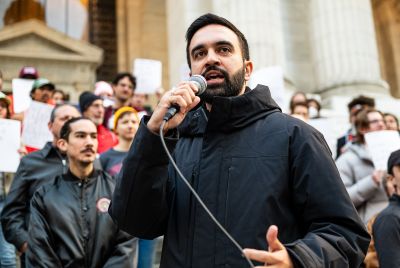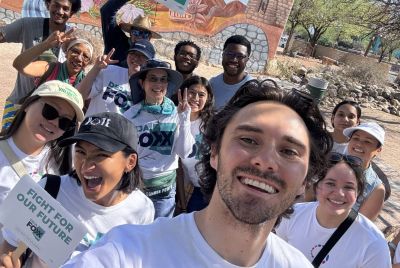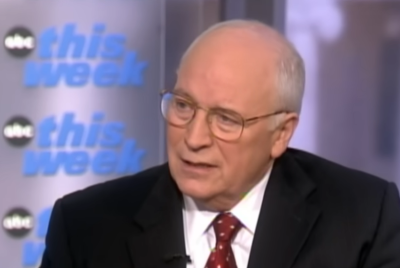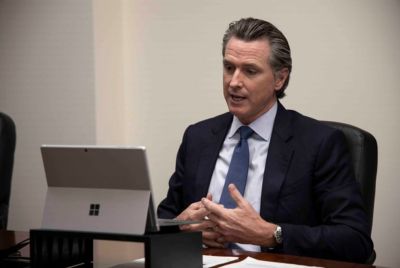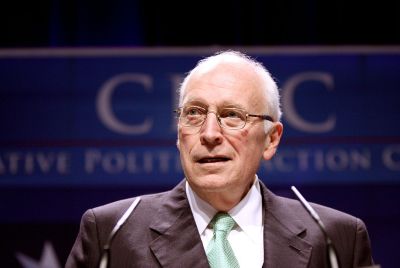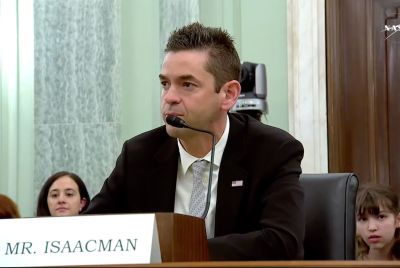Qaddafi, the Illegitimate Target - and he's the easy one!
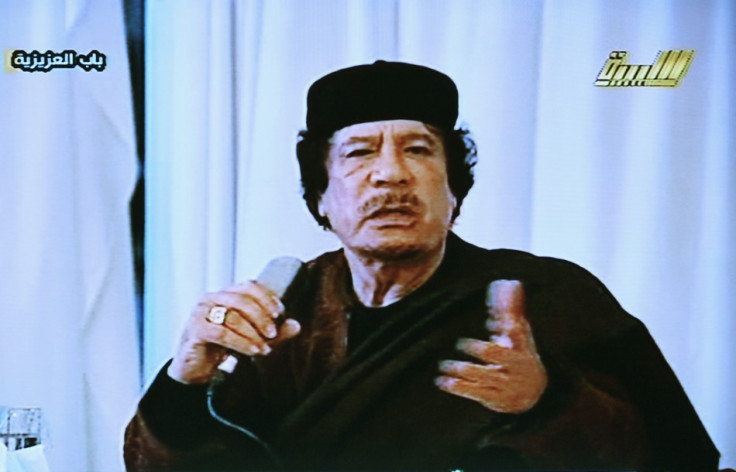
At the Arab Summit in Doha, Qatar, on Monday, 28 March, 2009, Libyan leader, Colonel Muammar Qaddafi grabbed a microphone as the conference was about to begin and denounced King Abdullah of Saudi Arabia as a "British product and American ally."
Definitely wide of the mark on the British aspect, I would refer the King of Kings of Africa and Imam (leader) of Muslims, to an excellent book, now sadly out of print, by Jacques Benoist-Méchin, Arabian Destiny (1957) for a more accurate description on the emergence of King Ibn-Saud and his successors.
Accuracy not always being Colonel Qaddafi's forté, he then continued berating the Saudi ruler, referring to a previous disagreement between them at an Arab summit in 2003, just prior to the Second Gulf War, saying: "Now after six years, it has proved that you were the liar!"
For a man who has been known to take pride in the fact that he was born in a Bedouin tent near Sirt in 1942, to very publicly address and scold a King thus, could only be deliberate and the gravest of insults. It could only have one consequence in a culture which places great store in the manner of speech and gestures used when addressing a person: eternal enmity. A lack of decorum however, is only one of the ways that Colonel Qaddafi has made himself foes since coming to power in 1969 - and the least harmful way to others.
An admirer of former Egyptian leader Gamal Abdel Nasser, Colonel Qaddafi is believed to have been profoundly affected by Israel's victories against the Arabs in 1948 and particularly, when facing attack on three fronts, in 1967. Resenting the lack of support offered to the Arab cause by King Idris of Libya during the 1967 conflict, Army Captain Qaddafi played the key role in the overthrow of the monarch in 1969. He created and became leader of the Libyan Arab Republic.
The expulsion of some 50,000 Italians from Libya soon after Colonel Qaddafi's rise to power was treated as a swipe at the old colonial masters and of little concern to the outside world. Much more worrying was the clampdown on any form of dissent and the treatment of any who, even in the slightest degree, challenged the regime. A presidency turned dictatorship, disagreement in Libya was treated as treason and the law changed to make it so, by 1973.
In Libya, there is heavy state censorship of all forms of the media and a system of informers which some claim to involve one in ten of the population or more. Dissidents can expect detention without trial, heavy jail sentences if brought to trial, torture, intimidation of family members and at worst, death. Many critics simply disappear and are never seen again.
A situation not unique to Libya one can argue, but what made the Qaddafi regime particularly sinister was the avowed and blatant export of terrorism against real or perceived enemies as a bastion of state policy. This programme was adopted early on with little or no attempt to hide it. The apparatus of the state was used to promote, train, arm and fund terrorism at home and abroad.
Israel was an early target but so was the UK, amongst several other countries, through Qaddafi funding and arming the IRA's bombing campaign in Northern Ireland and mainland Britain during the mid 1970s.
In April 1984, Libyan diplomats shot at Libyan dissidents protesting outside their Embassy in London, killing policewoman Yvonne Fletcher.
Most infamously, on Wednesday 21 December 1988, Pan Am Boeing 747 Flight 103 was destroyed by a bomb over the small Scottish town of Lockerbie, killing all 243 passengers and 16 crew on the flight and 11 people in Lockerbie itself.
Abdel Baset al Megrahi may have been the monkey but he certainly wasn't the organ grinder. According to Mustapha Abdeljalil, former Libyan Justice Minister and newly defected to the Libyan rebels, speaking to NewsCore on 24 February 2011, Muammar Qaddafi personally ordered the bombing.
To outline all of Colonel Qaddafi and his Government's acts of terrorism both directly and indirectly throughout the world would require a book on its own, possibly more than one. To understand the hatred and fear this man engenders is not difficult and there is no doubt that if his troops had taken Benghazi, retribution against unarmed, ordinary citizens, never mind those caught in possession of weapons, would have been on a scale of nightmarish proportions. Therefore, on balance and on humanitarian grounds, the violation of Libya's sovereignty was the correct one.
Loathsome as he might be, Qaddafi has been given "the kiss of peace" by some, the "hand of friendship" by others and the acceptance of his "blood money" by others still - all these noted by friend and foe alike. It might be better then not to go too far in exceeding the terms of the UN 's Resolution. When all said and done, this "Johnny No-Pals" is the easy tyrant to take on.
© Copyright IBTimes 2025. All rights reserved.





